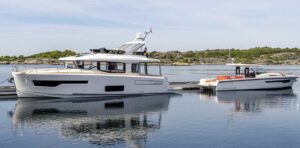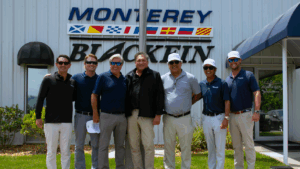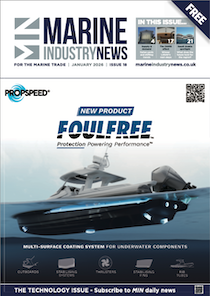HP Watermakers expands reach after 30 years in business
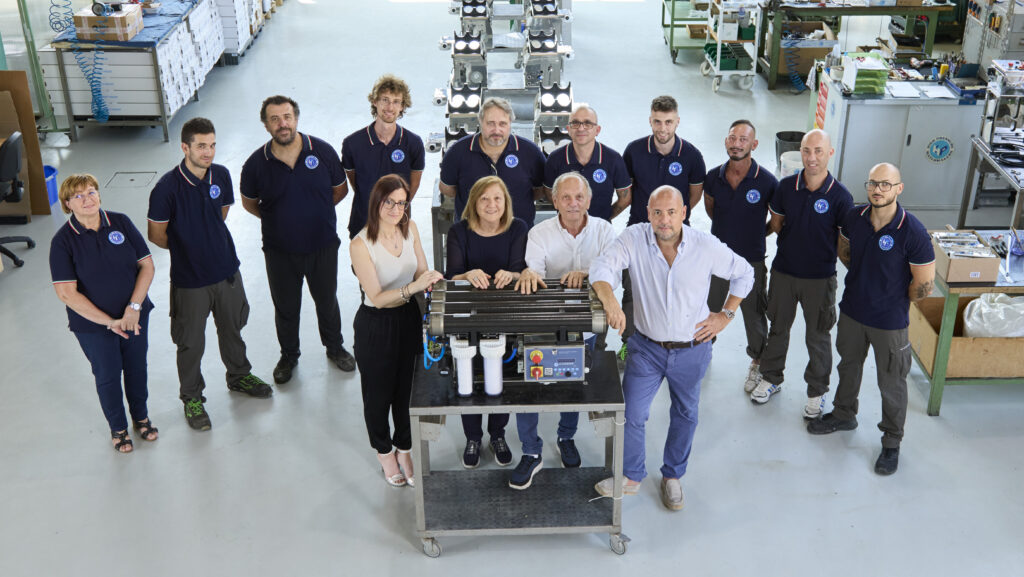 HP Watermakers turns 30 this year.
HP Watermakers turns 30 this year.
Water purification specialist HP Watermakers is marking 30 years since it was founded in 1995. Although the Italian company is officially three decades old, its origins date back to shortly after the end of WWII, when Defendente Grossi began a precision mechanics business in a Milan garage.
The company later moved to Quinto Stampi and, by the 1970s, Luciano Zucco had joined. After marrying Valeria Grossi — Defendente’s granddaughter — the couple helped develop the business, then named OMELF, which began supplying components to desalination plant manufacturers by the end of that decade.
“The 1980s and the first half of the 1990s were years of great growth,” recalls Gianni Zucco, co-founder of HP Watermakers. “The supply of mechanical parts for desalination plant manufacturers was an important part of our work, but, at the same time, we realised that there were enormous possibilities to improve and develop these machines, something that the manufacturers of the time had failed to understand. Hence the idea and desire to create our own machine, so we could develop it according to our ideas and technical skills.
“HP High Pressure SRL was established in 1995, bearing the new HP Watermakers brand, and production started in a corner of the Quinto Stampi warehouse.”

The company initially sold only two desalination plants in its first year, both paid for with bounced cheques. However, revenue from the existing business helped finance its early operations. HP Watermakers now operates in the naval, civil and military sectors, in addition to yachting. The company’s headquarters are located in Zibido San Giacomo near Milan, with a 3,100-square-metre site producing over 400 desalination units annually.
The company has expanded globally, with direct branches established in Dubai (2009), the Maldives (2015), South Africa (2018) and Fort Lauderdale, Florida (2021). HP Watermakers also works with 56 dealers worldwide.
One of the first technical milestones came in 1997, when the company introduced an automatic membrane washing system to reduce manual intervention and prevent blockages.
“The models in production at the time, which had been the same for years, required continuous maintenance and had a number of reliability issues,” says Zucco, recalling that the automation helped retain customers early on.
In 2002, HP Watermakers launched RP Tronic, a pressure regulation system using a motorised valve that automatically adjusts to water salinity and temperature variations. The firm says this helps the desalination plant maintain consistent pressure and reduces the need for manual control.

In 2004, the company introduced the AMCS (automatic membrane conservation system). The AMCS works in conjunction with RP Tronic and the automatic washing function by adding a sodium metabisulphite dose to protect membranes when the system is not in use.
The 315-40 membranes launched in 2008 enabled the production of more compact and energy-efficient machines with fewer components.
In 2017, HP Watermakers introduced BiBi, an internet-connected interface allowing remote monitoring of the desalination process. BiBi can send real-time notifications to users and service teams about system performance and potential malfunctions. Over 400 machines are currently connected.
The company later developed Part-NET, a user interface compatible with major plotters from Garmin, Raymarine, Furuno, Simrad, B&G and Lowrance. This integration enables full monitoring and control from a vessel’s bridge.
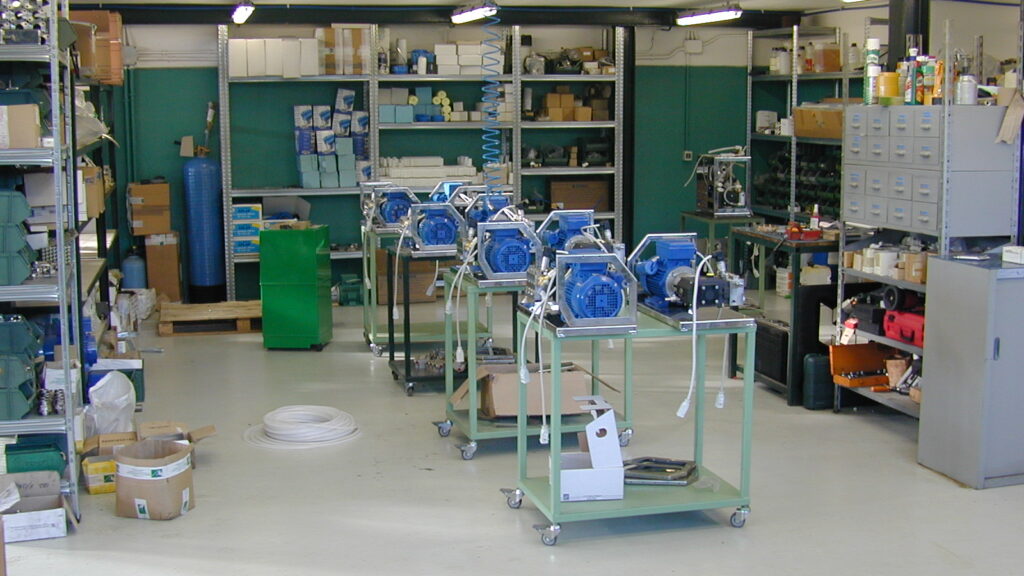
In response to feedback from shipyards, HP Watermakers released Sea0Spot in 2023. This add-on allows the system to treat marina water, even when sourced from wells, using existing membranes to produce residue-free water suitable for cleaning and onboard use.
In 2024, the company launched the SCA Double desalination unit, which integrates two independent SCA systems into one frame. This allows either unit to operate independently or simultaneously, improving redundancy and space efficiency.
Other products include Genius, a system designed to provide potable water in remote locations, and Kilo, a compact unit that delivers 100 l/h of water while consuming only 1 kWh, intended for vessels between 35 and 50 feet.
“Today, like 30 years ago, we are still used to looking ahead and setting new goals,” says Zucco. “An example is ‘Together We Boat’, the strategic alliance between HP Watermakers, Besenzoni, Mapei Marine and Feit Pompe that is one of the most interesting partnerships in the boating industry. Through it, new trade agreements were initiated in Europe and the foundations were laid for collaboration in the American market.”
Zucco concludes: “Then there is a concept that I really want to stress. Water is a precious commodity that everyone needs to live and survive, from the most advanced societies to small, remote villages. From the beginning, we have always maintained an ethic in our work that has led us to pay great attention to the sustainability of our products, but also to their social impact.
“We must not only think of boating and large yachts. HP Watermakers units are also aimed at resorts and communities, so in the civil sector, they can be a great help in countless emergency situations.”
HP Watermakers manufactures a wide range of fully automatic systems producing between 35 and 10,000 l/h, compatible with all standard AC/DC voltages. The company holds ISO 9001 certification and produces around 80 per cent of its components in-house. Production capacity reaches up to 1,000 units per year.


